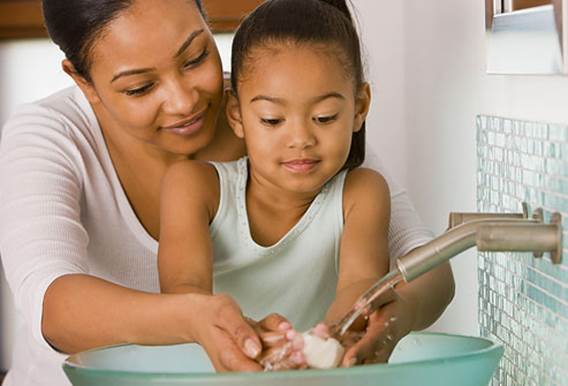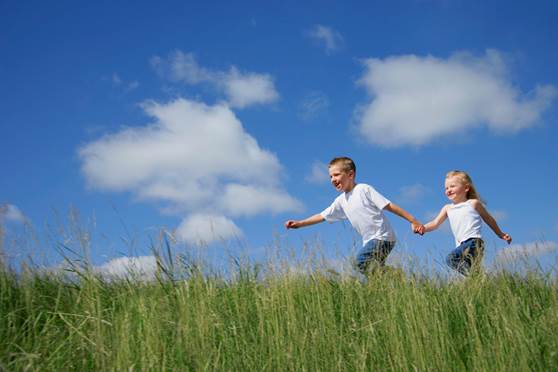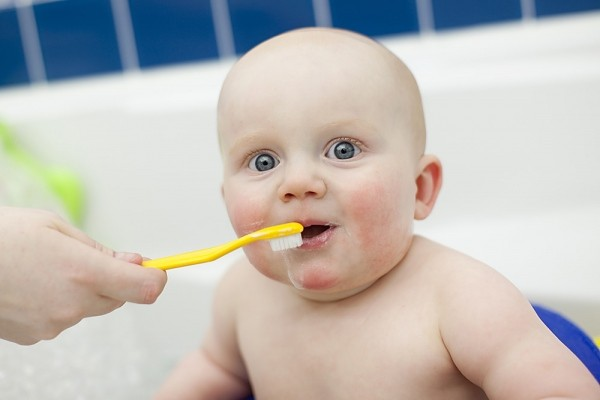According to The Central For Disease
Control and Prevention (America), washing hands is the best way to decrease the
chance of diseases. In fact, there’re many children who don’t like washing
hands and even if they do wash hands, they make light work of it in a fast way
when there’s no adult’s lookout.

Show
them how to use soap, how to wash hands and a happy song while doing it.
How
to treat
Tell children when they need to wash hands:
after using the toilet, before meals and after picking noses. Show them how to
use soap, how to wash hands and a happy song while doing it. However, parents
don’t need to take care of the washing hands of children as contacting to
bacteria is one way to improve the immune system.
7. Using electronic products
Many researches showed that spending long
time looking at electronic products can be harmful to children. While a
fast-paced cartoon affects children’s attention and organization skill, video
games can decrease the exercise capacity and increase their waist indexes.
How
to treat
The American Academy of Pediatrics
recommends children who are under 2 years old not to watch TV; in the room of
children who are around 10 years old, there shouldn’t be a television; no
television when eating and the recommended number of hour to watch TV is 2
hours a day. Certainly, to achieve the purpose, it’s required to have parent coordination.
8. Not taking part in outdoor activities

The
outdoor activities will help children to have physical development, improve
eyesight and brain health.
According to researches, about a half of
children in the age of kindergarten didn’t take part in physical outdoor
activities every day. The outdoor activities will help children to have
physical development, improve eyesight and brain health. At the same time, they
provide children with vitamin D which is used for bone developments.
How
to treat
The American Academy of Pediatrics
recommends parents to create conditions for children to have at least 1 hour
for outdoor activities. Parents can join with children to strengthen the
connection by cycling or playing games together. By doing it for a long period
of time, outdoor activities will be a part of children’s life.
9. Not noticing sun light
Children’s vulnerable skin is easily
damaged by contacting with UV. The damage will rack up over times. According to
the American statistics provided for The Skin Cancer Foundation, children who
have sunburn have risk of melanoma twice as much as adults having sunburn.
How
to treat
Encourage your children to play under the
shade and use sun cream every day. Newborns should be prevented from contacting
to the sun in its most powerful time.
10. Not
brushing teeth or using dental floss

From
the time children have their first tooth, you should carefully keep their oral
hygiene daily.
Even to children who are under 1 year old,
decays and infections can happen. The spokesperson of the American Dental
Association – pediatrician Jonathan Shen said that children have decay can have
high risk of decay when they’re grown up.
How
to treat
From the time children have their first
tooth, you should carefully keep their oral hygiene daily. After they are 2
years old, you can show them how to brush teeth and use floss after that.
Finally, you should know that to children
who are old enough, you need to emphasize the disadvantages of bad habits to
them or ask doctors to explain to the children about the effects of biting
nails, holding food in the mouth…. For example, you should let your children
know that picking nose can spread germs, cause cough and cold.
If your children aren’t old enough to
recognize the situation, you should gently remind them so that they can get it
gradually. Strict methods like rubbing chili on the fingers of children who
like biting nails aren’t efficient. For instead, you should use prizes and
encourage children Above all, parents should be patient on teaching children.
Don’t be rush or angry or something bad will happen.